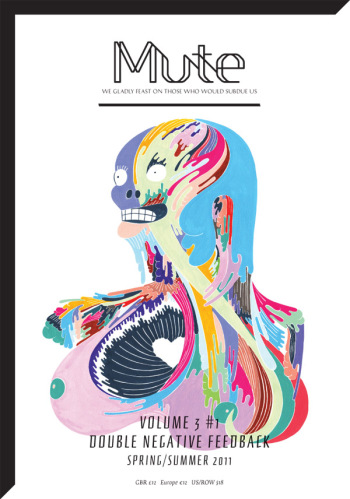Andrew O’Hagan: Julian Assange: The Unauthorised Autobiography (2011)
Filed under book | Tags: · activism, biography, computing, cypherpunk, diplomacy, hacking, internet, media activism, military, politics, war, wikileaks

“In December 2010, Julian Assange signed a contract with Canongate Books to write a book – part memoir, part manifesto – for publication the following year. At the time, Julian said: ‘I hope this book will become one of the unifying documents of our generation. In this highly personal work, I explain our global struggle to force a new relationship between the people and their governments.’
In the end, the work was to prove too personal.
Despite sitting for more than fifty hours of taped interviews discussing his life and the work of WikiLeaks with the writer he had enlisted to help him, Julian became increasingly troubled by the thought of publishing an autobiography. After reading the first draft of the book at the end of March, Julian declared: ‘All memoir is prostitution.’ In June 2011, with thirty-eight publishing houses around the world committed to releasing the book, Julian told us he wanted to cancel his contract.
We disagree with Julian’s assessment of the book. We believe it explains both the man and his work, underlining his commitment to the truth. Julian always claimed the book was well written; we agree, and this also encouraged us to make the book available to readers. And the contract? By the time Julian wanted to cancel the deal he had already used the advance money to settle his legal bills. So the contract still stands. We have decided to honour it – and to publish.
This book is the unauthorised first draft. It is passionate, provocative and opinionated – like its author. It fulfils the promise of the original proposal and we are proud to publish it.” (publisher)
Ghostwritten by Andrew O’Hagan
Publisher Canongate Books, September 2011
ISBN 085786386X, 9780857863867
352 pages
review (David Leigh, Guardian)
review (James Ball, New Statesman)
review (Economist)
PDF (MOBI; updated on 2012-8-5)
Comment (0)Global Media Journal 5(1): Australian Edition: WikiLeaks: Journalism and the 21st Century Mediascape (2011)
Filed under journal | Tags: · journalism, wikileaks

“This issue of Global Media Journal, Australian edition, has taken a significant step in choosing to focus its attention on the WikiLeaks phenomena. The call for papers for the issue elicited a strong response. We were aware that WikiLeaks has provoked significant controversy in its relatively short existence. The refereed papers, essays, book reviews and presentation by Kristinn Hrafnsson – the spokesperson of WikiLeaks – all reflect the robust debates currently circulating around the WikiLeaks phenomenon. In some respects, the emergence of WikiLeaks was tailor-made for public media exposure and analysis. Despite an early lack of interest by the mainstream media, Wikileaks persisted until it won due recognition with its web-based whistleblowing model and significant assault on classified files – most from the alleged whistleblower, Bradley Manning, the US army private accused of leaking classified documents to WikiLeaks.” (from the Editorial)
Issue editors: Hart Cohen and Antonio Castillo
Published in September 2011
ISSN 1835-2340
Mute, 3(1): Double Negative Feedback (2011)
Filed under magazine | Tags: · architecture, art, capitalism, contemporary art, cultural politics, economics, financial crisis, journalism, music, neoliberalism, networks, politics, uk, wikileaks

“‘Double Negative Feedback’ expresses the hope that the chaos unleashed by the cybernetic loops of financialisation, post-Fordist production and networked life might not only be entropic and exploitative. The noise generated by ‘positive feedback’ also takes the form of the explosions we are seeing in the Arab world, the anti-disciplinary uses of cybernetic control systems, the ‘shared precarity’ of compositional improvising, and the ripples of a political organising that no longer assumes a common identity but instead acknowledges our common vulnerability. This issue scouts out such double-negative loops in a landscape dominated by the relentless, if often misfiring attempt to put feedback to work.”
Edited by Josephine Berry Slater
Publisher Mute, London, June 2011

